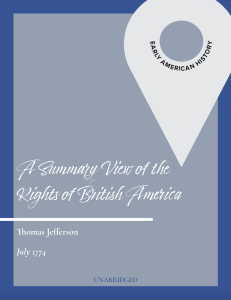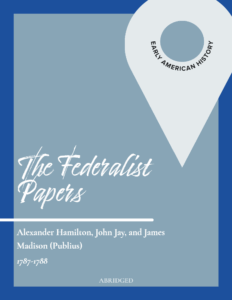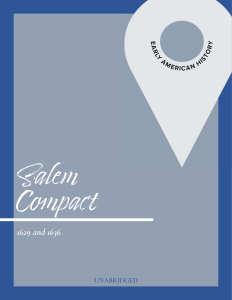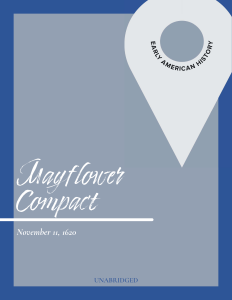
Your life is the first and most important property you own.


Capital determines whether a society will be prosperous or poor, well-fed or not, populated by independent and self-reliant citizens or dependent subjects. An abundance of nutritious food, clean water, sturdy homes, safe modes of transportation, reliable sources of heat and power, modern medicines, and many other products and technologies that improve the quality of human life are impossible without capital.
A teacher can help students understand what capital is by encouraging them to think of capital as an individual’s “starter pack” for being productive and getting things done. Capital includes the tools, money, and other valuable resources a person needs to create something of value, or to solve a problem in order to create wealth.
For example, if you wanted to start a lemonade stand, the money you use to buy cups, lemons, water, and a sweetener is capital. While money is an important form of capital, capital can include other resources that help you create wealth for yourself by producing value for others.
Other Kinds of Capital:
Capital is anything you can use to “build” something that will provide experiences of value for other people. Money is the most obvious example of capital, but creativity, friendships, and even your honesty and intelligence, can be just as important, maybe even more important in some circumstances.
So, yes! Capital is cash and more: Capital includes any resource that helps you be more productive. Ask students: What kinds of capital do they have? Maybe it is their energy, ideas, or even their ability to make people laugh. Remind them that everyone—even people with little or no money—have important capital over which each person has much control: A person’s own reputation, honesty, and trustworthiness.
Evaluating incentives
One of the most important questions within any society is: Who will allocate capital? One possibility is that individuals choose whether, how, when, where, and why to spend their own money and invest their own capital. Another option is that political elites within government will tax citizens and confiscate the wealth that others have created, and then those in government will choose how to allocate other people’s their capital.
Individuals choosing how to invest their own capital have strikingly different incentives than politicians and bureaucrats in government spending other people’s money.
As we discuss in another section, profit is the happiness of other people. When individuals and business owners make their own choices about how to allocate and when to invest their own capital, they aim to earn a profit—they want a return on their investment—which is another way of saying they’re trying to make other people happy by producing value for them.
When those in government choose how to spend other people’s money, they serve their own interests, usually by expanding the scope and power of government. That is worth repeating: Business owners allocate their own capital in order to make a profit for themselves by making other people happy; government allocates other people’s capital in order to extend the power and control of government.
Every new government spending program, after all, requires expanding the class of unelected bureaucrats, adding new levels of control over what citizens may do, and adding new kinds of taxpayer-funded government competition to businesses and other private organizations.
Incentives of Allocation
For politicians and bureaucrats, resource allocation often means achieving political ends or aiming for short-term gains. Without direct knowledge of costs or profits, these decisions can be quite unpredictable.
When private individuals choose how to invest or spend their own money, they have strong incentives to make careful, strategic decisions. If they invest wisely, they personally reap the rewards; if they invest foolishly, they suffer the losses. This direct link between decisions and consequences encourages efficiency and accountability. Individuals are motivated to seek the highest return (or best use) for their funds, and they also bear the risk of losing their capital if a project fails.
By contrast, when those in government take capital from citizens through taxation, politicians and bureaucrats end up allocating resources that are not their own. As a result, several distortions can arise:
In short, when individuals allocate their own funds, they have personal incentives—financial risk and reward—to be careful stewards of their capital. When governments collect taxes and decide how to spend them, officials are allocating other people’s funds and often do so under weak or no incentives for efficiency, with less direct accountability for mistakes, and with political or bureaucratic considerations that can overshadow the goal of maximizing societal well-being.
 Nº1
Nº1
Description
Download PDF Download ePub Button 3
When Thomas Jefferson wrote in the Declaration of Independence that all human beings “are endowed by their Creator with certain unalienable Rights, that among these are Life, Liberty, and the pursuit of Happiness,” he was drawing from a deep tradition of natural rights philosophy, particularly from John Locke and the English Whig tradition.
For Locke, human beings are by nature free and equal. Each person is born with natural rights—not granted by government or society, but inherent in their very existence. Chief among these rights is life. But Locke, and the tradition Jefferson inherited, did not treat “life” as something abstract or separate from the idea of property.
In fact, Locke’s Second Treatise of Government (Chapter V) argues that one’s life is one’s primary property: “every man has a property in his own person; this nobody has any right to but himself.” Your life is your property; your property includes your life. Arguably, your life is the first and most important property you own.
To say that a person’s life is his property is to affirm that no one else—not another individual, not a king, not the government—has a legitimate claim of ownership over his life. Your body, your labor, your thoughts, your time—everything that constitutes you—is fundamentally yours. Without the right to life as property, there can be no meaningful right to liberty or to pursue happiness, because everything else depends on secure ownership of oneself and one’s own life.
Jefferson’s inclusion of life as the first enumerated unalienable natural right highlights its foundational role. If the natural right to one’s own life is unalienable, that right cannot be rightfully taken or surrendered. Governments are instituted, in Jefferson’s words, to secure these rights—not to grant them, not to violate them—and the legitimacy of any government depends on protecting individuals from arbitrary deprivation of life.
This principle radically rejected the older view that rulers could dispose of subjects at will. It declared instead that human beings exist prior to and independent of government, and that each person’s life is his inviolable property.
Seen in this light, the right to life in the Declaration is not merely the right to breathe; it is the recognition that every person owns himself. Self-ownership of one’s own life is the moral foundation for all other rights and the bedrock of a free and just society.



